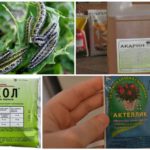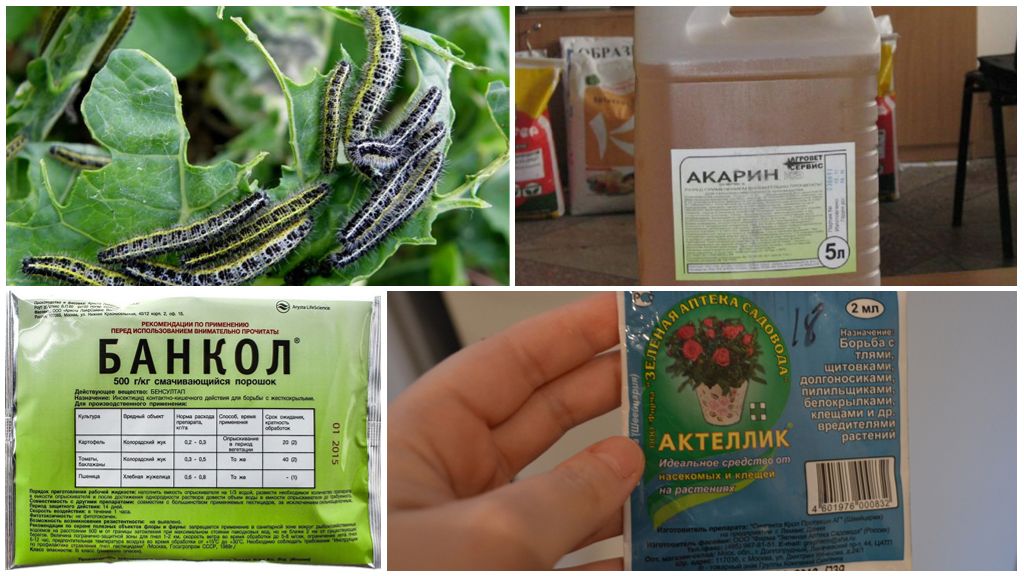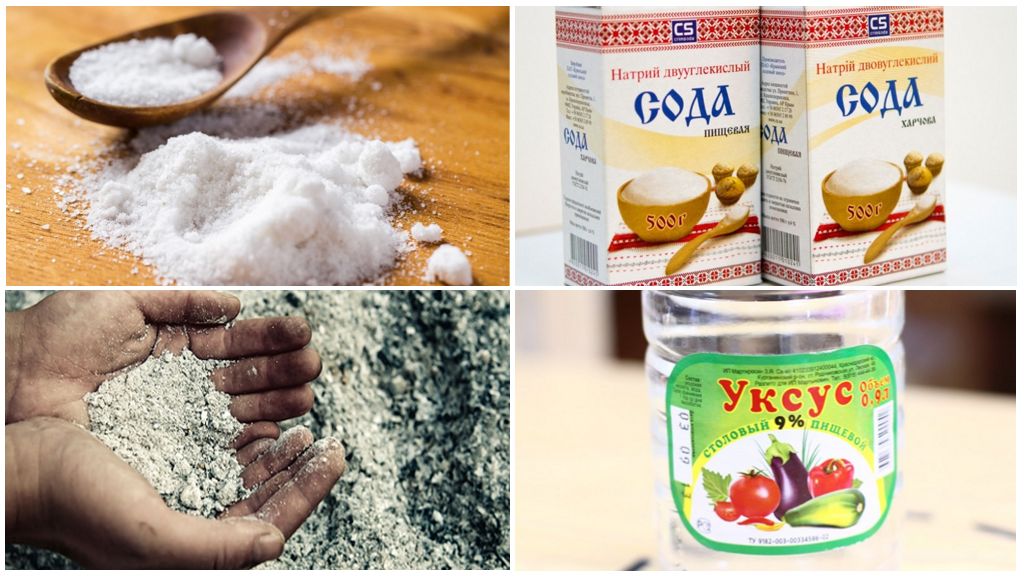How to get rid of caterpillars on the cabbage folk remedies
Content
- Chemicals for caterpillar fighting
- Caterpillar Repellent Plants
- Caterpillar Fighting Methods
One of the most pest-afflicted vegetables in the garden is cabbage. Regardless of its variety, cabbage like to eat the larvae of 4 species of butterflies, slugs and snails. If the appearance of caterpillars on the cabbage does not take any measures, then the garden can be replaced by up to 5 generations of pests.The crop in this case will be completely destroyed, since the caterpillars eat the cabbage literally completely, leaving only the veins on the leaves.
How to get rid
Ways to combat the caterpillars are the same as with other pests. They can be:
- mechanical;
- chemical;
- biological;
- folk.
The first option means simply collecting the caterpillars with your hands from the cabbage beds. The caterpillars of diurnal butterflies are easily noticed: they are thin relative to the length of the black-green larvae, covered with sparse bristles. If you manage to collect them all, you can be relatively calm for the harvest.
“Fatty”, without stubble, green caterpillar on cabbage is a bad sign. This is a bot cabbage scoops. They are active night and day, hiding. If one is discovered, you can be sure that there are plenty of these pests in shelters. And here already it is necessary to pass to other ways of protection of cabbage.
Chemicals
In stores today, a very large selection of chemicals that can cope with caterpillars:
- Acarin;
- Fitoderm;
- Actellic;
- Bankol.
These insecticides allow you to simultaneously treat the cabbage from aphids and caterpillars. Bred them according to the instructions indicated on the package.
On a note!
The minus of all chemicals is that they are processed at least one month before harvest.
Biological products
With a minor infection, you can use drugs of the 4th class of danger, the action of which is based on the use of nematodes and bacteria, parasitizing in caterpillars:
- Bitoxibacillin-BTU;
- Lepidocid.
The cabbage is carefully sprayed with the prepared solution, trying to get the liquid on the caterpillars.
On a note!
The advantage of such insecticides is that they can fight not only with daytime pests, but also with caterpillars leading nightlife. Also, drugs are completely harmless to mammals. Minus: the solution can not be stored and must be used within 19 hours after preparation.
Folk methods
The main problem with this vegetable is that it’s relatively few substances than treating cabbage from caterpillars with folk remedies. The most common cabbage varieties of cabbage, and wrapped leaves will not allow the rains to wash away the drugs. Therefore, you need to choose such substances that do not harm health or when cooking to disassemble the cabbage on the leaves and wash each of them.
One of the folk remedies for caterpillars on cabbage is the mechanical collection of larvae and eggs of butterflies.To do this, wear gloves, as day caterpillars covered with bristles.
It is possible to protect cabbage from caterpillars by planting repellent plants between the beds:
- dill;
- cilantro;
- celery;
- marigold;
- parsley;
- sage;
- calendula
Pests do not like the smell of these plants and it allows you to scare the butterflies from the cabbage.
Save the cabbage from the caterpillars can be, if you decompose on plantings finely chopped egg shells. Butterflies do not lay eggs in a busy area. Seeing the white particles on the cabbage, the butterfly "thinks" that the eggs here have already been laid by someone else and flies farther.
On a note!
Another way to get rid of caterpillars on cabbage with folk remedies without using any substances is to stretch a fine mesh over the beds. The net should let the sun's rays in sufficient quantities, but prevent the butterflies from planting on the cabbage to lay eggs.
Folk solutions and decoctions
Folk remedies from tracks the same as for other harmful insects:
- ash;
- ammonia;
- baking soda;
- vinegar;
- decoctions of foliage tops;
- infusion of milkweed (poisonous).
The smell of Solanaceae is also unpleasant for the butterflies themselves.Strong infusion of tops of tomatoes is able to scare off pests from cabbage beds. It is enough to insist 600-700 g of dry tops in 10 liters of water for 2 days and with this infusion spray cabbage from caterpillars and butterflies. Before spraying, 40 g of soap should be added to better adhere to the composition.
Brine
This solution can be processed cabbage from slugs and caterpillars. It will work on snails.
Important!
Salt is a deadly poison for all terrestrial mollusks.
2 tbsp. Spoons of ordinary table salt should be diluted in 10 liters of water and carefully water the cabbage, making sure that the composition gets on the leaves. Such a solution will not harm the person, even if carried out processing immediately before harvesting.
The disadvantage of this method is that the solution is easily washed off with rain, therefore, it is necessary to sprinkle or water the cabbage on days when it is not expected to rain.
On a note!
Dry salt can be used as a barrier against slugs. It is enough to make the grooves around the beds, lay polyethylene strips in them (salt is not desirable in the soil) and pour salt on the plastic.
Soda and ash
The principle of using soda and ash from the caterpillars is the same: sprinkle powder on the heads of cabbage. But the dry powder will blow away the wind, so the treatment of plantings should be carried out on the dew.Or make an ash solution: 2 glasses of ash insist in a bucket of water, add soap to improve adhesion and spray the vegetables.
On a note!
Soda can be mixed with flour and this mixture to powder plants. If you sprinkle a wet surface, the flour will stick better than soap.
Vinegar
Due to the cheapness of ingredients and ease of preparation of the solution, the following recipes are very popular:
- 2 cups 9% vinegar per 10 liters of water;
- 2 tbsp. tablespoons of 70% acetic acid per 10 liters of water.
The resulting composition should be carefully watered vegetables, be sure to "seize" the leaves.
On a note!
Pour vinegar in vinegar in its pure form is not necessary. 9% table vinegar is very effective against pests, but acid corrodes not only insect tissue, but also any other organic matter. Acetic acid concentration that is too high will damage the growing heads.
Salve
Ammonia requires 50 g per 10 liters of water. The resulting solution is sprayed beds.
Prevention
In addition to picking up substances than sprinkling, so as not to eat cabbage, you can take preventive measures to reduce pests in the beds:
- regularly weed the beds;
- remove all vegetable waste from the beds;
- inspect regularly for caterpillars and eggs;
- manually collect pests.
But the best option would be to combine prevention with the treatment of plantings. Moreover, one of the ways to control weeds contradicts the point “to remove waste”. Experienced gardeners advise to prevent the growth of weeds to mulch the soil with grass, that is, plant residues.











